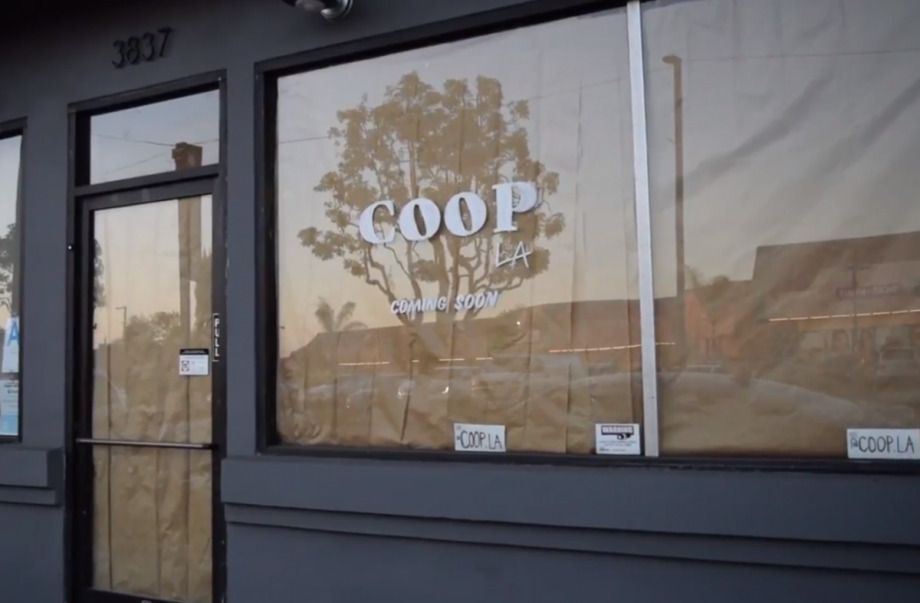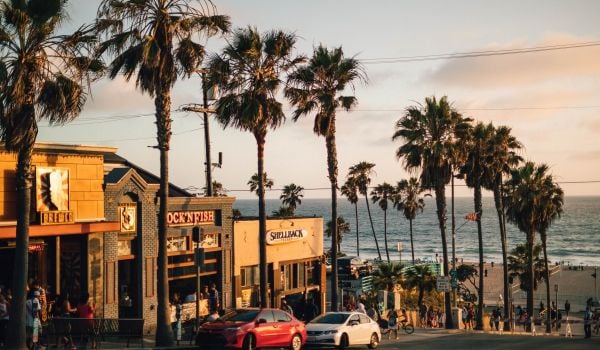Kateri Gutierrez yearned for her hometown in Southeast Los Angeles County. The region is made up of working-class cities like Lynwood, South Gate, Bell, and Maywood, which have become known as gateway cities for immigrants to the United States.
While Southeast L.A. has been mired by city government corruption scandals and life-threatening pollution amid train yards, manufacturing, and battery recycling plants, the region is also defined by community perseverance. To address the lack of art spaces in the area, one substitute teacher hosted popular open mic nights in his parents’ garage. Earlier this summer, thousands of people flocked to Lynwood for the first SELA Arts Festival that featured Chicanx performers, local vendors, and artists along the LA River.
Born and raised in Lynwood, Gutierrez left for the University of California Berkeley after high school and immersed herself in business and consumer courses. She gained corporate experience working for Disneyland and top accounting firms. Eventually, she left the corporate world to move back home.
Gutierrez was determined to spur economic change and, to that end, decided that her neighborhood needed more community-minded businesses in which workers shared management and ownership — in other words, it needed more worker cooperatives.
So, taking her experience in running a business, she helped open Collective Avenue Coffee, a pop-up coffee shop in Lynwood that, within three years of existence, has helped spark a mini-movement of worker cooperatives in Southeast L.A. The coffee shop will soon be one of four worker cooperatives that will co-locate in COOP LA — a venture that workers say could be the first commercial space in California to be comprised only of worker cooperatives.
“We’re going to revamp small business development, not from outsiders, but by strengthening existing communities,” Gutierrez says. “We’re not keeping the community separate … We’re including them as part of the process.”
COOP LA will include Collective Avenue Coffee, De La Luna Catering, Salazar Landscaping, and Semillas Wellness. Worker-owners of these businesses knew of one another from pop-up events around town and began meeting in hopes of finding a space where they could all pitch in for rent. The COOP LA space became available after the landlord sought Collective Avenue to complement an already-established bakery by serving and selling coffee. The landlord later agreed to lease the space to the four businesses, Gutierrez says. COOP LA is also hoping to raise $15,000 by Sept. 7 through a GoFundMe page to help cover plumbing and other build-out expenses and to help cover costs of community workshops and events.
“We’re all very community-minded in our business structure,” Gutierrez says. “No matter the industry.”
Across the United States, there are nearly 360 estimated small businesses that are worker cooperatives, according to the Democracy at Work Institute, a nonprofit that supports worker co-ops. The typical worker cooperative employs nine workers who make nearly $16 an hour and work 30 hours a week, the Institute says. The Institute found that cooperatives show a workforce that is 63 percent people of color.
Worker cooperatives appear to be increasing across the U.S., but L.A. lags other cities with only four such businesses reported in 2016, compared to 50 in San Francisco, the Democracy at Work Institute says. And, as Next City previously reported, New York City saw 36 new worker cooperatives launched in 2017 alone.
Gutierrez says she would sometimes drive up to the Bay Area to research cooperative models. She knew she wanted a worker-owned coffee shop “that the community can call its own.” She figured she’d take care of the business side of things and find a partner who would focus on the coffee. Gutierrez, along with Jonathan Robles, also from Lynwood, have been operating Collective Avenue Coffee out of a community center concession stand.
Southeast L.A. is hungry for the kind of businesses COOP LA will be housing, such as vegan food options and wellness services, Gutierrez says.
Growing up in South Gate, Lisa Luna, 27, is all too familiar with the abundance of car dealerships and abandoned spaces in disrepair that have left her feeling “incredibly vulnerable to judgment and gentrification.”
“It needs a familiar touch,” says Luna, who grew up in South Gate near the location of COOP LA, and also plans to offer writing workshops in the space after it opens.
Erik Rodas, 30, is the chef at De La Luna Catering. Raised in a working-class family, Rodas wanted to start a business “that would give opportunity to other people.”
According to Rodas, chefs in the restaurant industry are notorious for not giving credit to other workers.
“It’s not equal pay. It’s very hierarchical,” he says. “I didn’t want that for a business.”
De La Luna Catering has three workers, including Rodas. Everyone has a say on important decisions surrounding the food they cook, the money they make, and the events they participate in.
Rodas is looking forward to providing healthy “grab-and-go” food options to complement the coffee shop.
He sees COOP LA as an active way to resist gentrification.
“There’s a lot of anti-gentrification movements but … they don’t provide any alternatives,” says Rodas. “We just see this as an opportunity to hold space.”

Alejandra Molina is a Next City Equitable Cities Fellow for 2018-2019. Previously, she was a reporter for the Southern California News Group where she covered cities, immigration, race, and religion. In her decade-long career, she's reported how gentrification has affected downtown Santa Ana in Orange County, followed up how violent shootings have affected families and neighborhoods, and reported how President Donald Trump has impacted undocumented communities in the Inland Empire. Her work has appeared in The Press-Enterprise in Riverside, The Orange County Register, The Los Angeles Daily News, and The Mercury News in San Jose. She graduated with a bachelor’s degree in broadcast journalism from the University of La Verne, where she taught an introductory journalism course as an adjunct professor.



_920_518_600_350_80_s_c1.jpg)












